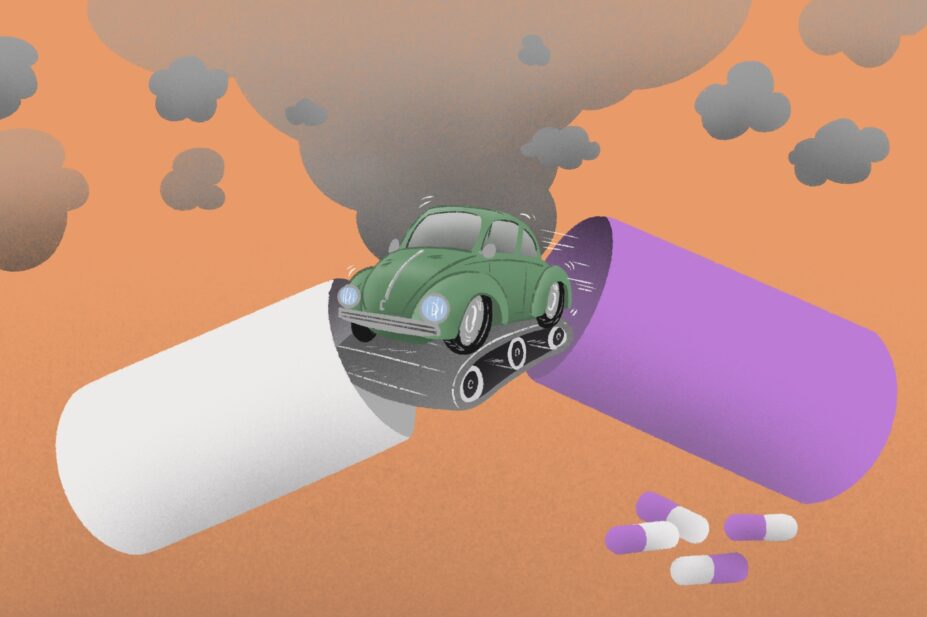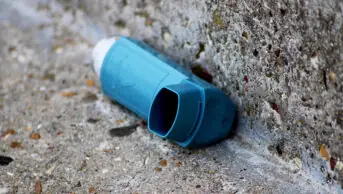
Wes Mountain/The Pharmaceutical Journal
When Louise Bond, deputy lead medicines management technician at Hampshire Hospitals NHS Trust, and I learned that our trust was participating in the Centre for Sustainable Healthcare ‘Green Team’ competition, we saw this as an opportunity to showcase the impact that pharmacy can have in supporting the green agenda.
With the additional resources and support that are on offer from the Centre for Sustainable Healthcare, we wanted to tackle the issue of medicines waste.
Medicines waste is a significant problem in the NHS, with an estimated £300m wastes annually on unused or partially used medicines. In hospitals, this waste is added to when patients do not take their medicines home or when their medicines are not transferred with them as they change wards, for example.
Our project aimed at changing that — by moving patients’ medication with them and returning unused medication in a timely manner so it can be reused instead of disposed of.
Before our project, no one looked at discharge medicines that had not gone with the patient or at inpatient supplies that were no longer required. It often fell between the wards and pharmacy to establish whose responsibility it was to look after them. From our initial ward sweeps to see what medication was left behind and not being used on the wards, it became apparent that there was a lot of medication left in random treatment room cupboards, often for months.
Our senior assistant technical officers — Emily Green, Stacey White and Atlanta McLauchlan — were each allocated wards to check at least two or three times per week for medicines that had been left behind or were no longer needed. Before the medicines were returned into pharmacy stock, they checked that the medicine had been stored correctly and was still in its original container and had at least three months before expiry.
In one month, medicines worth £6,942 were returned for re-dispensing across eight wards
They worked hard to sort through and return the medication that was still suitable for use and to move medication to other wards when the patient had moved. This reduced the need to re-dispense medication that had been ‘lost’ between ward transfers. We have also been able to return high-cost medication in a timely manner so that it does not go out of date and can be used for another patient. This reduces the need for multiple orders, reducing our carbon footprint for deliveries.
In one month, medicines worth £6,942 were returned for re-dispensing across eight wards, saving 2,360.28 kgCO2e, which is equivalent to 6,970 miles driven in an average car. If this is rolled out to all 45 wards at the trust, and we make only half the level of savings, we could still achieve an annual efficiency of £234,292 and 79.6 tonnes CO2e.
Having been involved in several projects over the years that were successful for a period of time when staffing and resources could be ring-fenced, we were determined to demonstrate that our project was sustainable in the longer term. We were lucky to have the support of our senior pharmacy management team to plan, deliver and implement our project with freedom to look at current job roles and how they could be used more effectively.
It has improved relations between the pharmacy and ward teams. The pharmacy team has taken on more responsibility for medication left in treatment rooms, which has led to better communication and discussion. For example, wards actively explain when patients may be coming back for their medication if they have been discharged but are also better at transferring medication with patients.
We are now looking at expanding our ward team of senior assistant technical officers and, at a time when recruitment is difficult, we can demonstrate the financial impact these roles can have (as well as a positive impact on patient care) to the trust executive. Members of the team have also found that their job satisfaction has increased as they are making a real difference and we feel that we have finally taken part in a project that we can continue with and build on even further.
Box: Top tips
- Check all treatment room cupboards not just those labelled ‘Discharge / TTO medication’
- Check wards daily to move medicines in a timely manner
- Check all bags / areas thoroughly, we found bank cards, teeth, hearing aids that would have been thrown away
Claire Williams is deputy clinical pharmacy manager at Hampshire Hospitals NHS Foundation Trust


